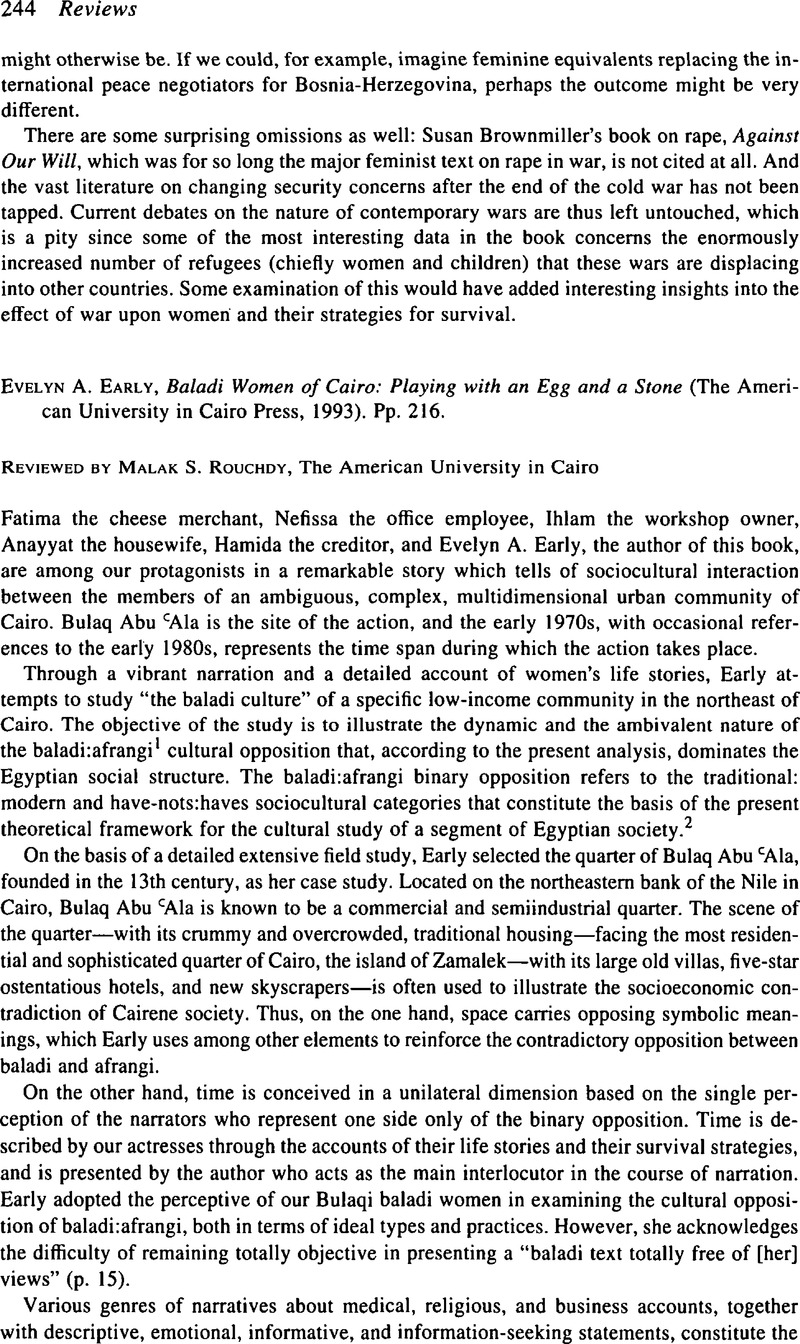No CrossRef data available.
Published online by Cambridge University Press: 23 April 2009

1 Baladi refers to a local or to an indigenous cultural model, whereas Afrangi refers to a foreign Western cultural model.
2 For further details, cf. El-Messiri, Sawsan, Ibn al-Balad: A Concept of Egyptian Identity (Leiden:E. J. Brill, 1978).Google Scholar
3 Cf. Redclift, Nanneke and Mingioni, Enzo, eds., Beyond Employment, Household, Gender and Subsistence (Oxford: Basil Blackwell, 1985).Google Scholar Also, cf. Rouchdy, Malak S., “Peasants and Merchants in Batra. The Process of Economic Transformation and Diversification in an Egyptian Village” (Ph.D.diss., University of Durham, England, 1990).Google Scholar